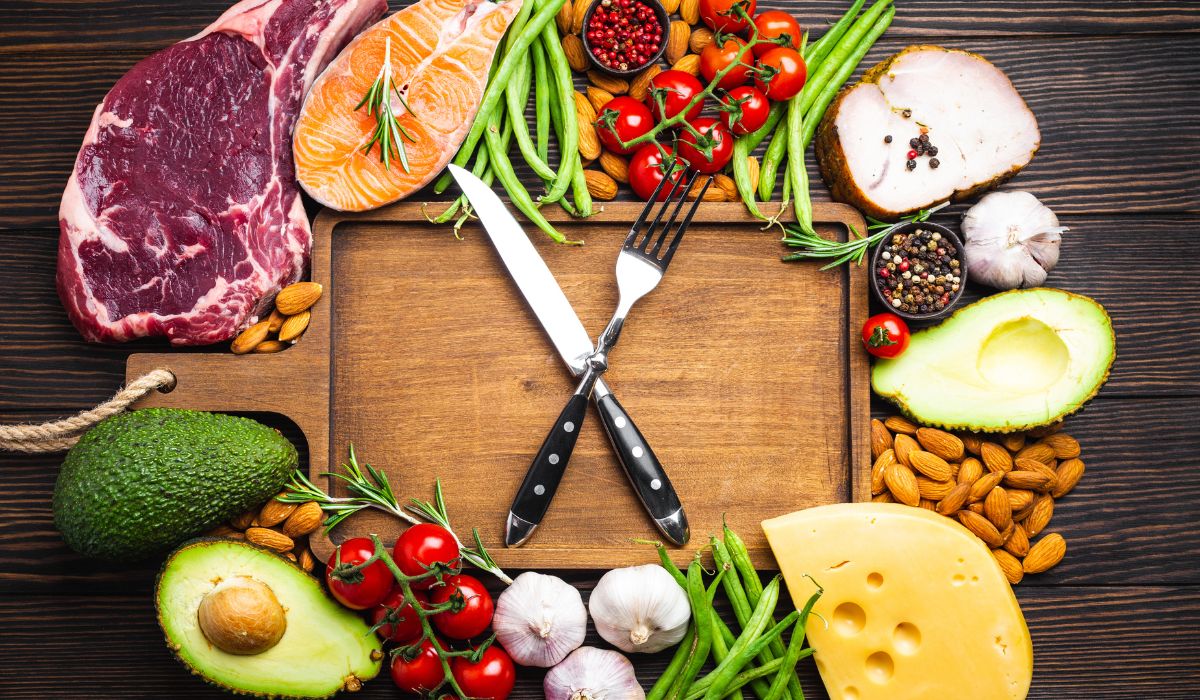
Keto is undeniably great for a lot of folks, but that doesn’t make it perfect! Several studies, like this one, have reported side effects ranging from minor irritations to pretty severe problems.
Here, we’re only looking at studies in adults eating keto for weight loss - people in these studies might have high blood pressure or some blood sugar issues, but they don’t have epilepsy or cancer. And we’re only looking at minor irritations, not serious medical problems. Think more “constipation” and less “hypoglycemic crisis.” (Serious problems, as always, are problems for a real doctor!)
This study is probably one of the most detailed papers on side effects in adults eating keto for weight loss. The researchers compared a keto diet to a low-fat diet and discussed the differences in side effects. Here are the side effects that were more common on keto than the low-fat diet (in other words, side effects that are specific to keto, not just dieting in general).
- Halitosis - aka bad breath (38%) of keto dieters
- Muscle cramps (35%)
- Constipation (68%) and diarrhea (23%)
- Feeling of weakness (25%)
- Headache (60%)
- Keto rash (13%)
Keto rash we’ve already covered in a previous article - read all about it here - but the rest of them deserve a mention as well.
1. Weird breath
“Keto breath” is a distinctive smell to your breath after you start eating keto: some people report it smells like nail polish remover; other people say it’s more sweetish or fruity. This is caused by a by a particular ketone, acetone (which is also a key ingredient in nail polish remover, hence the comparison). Ketogenic diets (or fasting) cause greater production of acetone, which then gets excreted through the breath, causing the smell. That’s normal and nothing really to worry about, but it’s annoying and not the greatest socially.
Mouthwash, brushing more, flossing more, breath strips, and other things won’t solve this problem. Keto breathisn’t caused by poor oral hygiene. Gum and breath mints will temporarily mask the problem but not actually fix the underlying issue.
The fix to this one is simple: give it time. Most people find that this is a temporary problem. It also depends on excess acetone, so you might experiment with techniques for reducing ketone production a little bit while still staying in ketosis (e.g., eating a bit more protein). Pick a favorite masking strategy in the mean time and give it time to settle down.
2. Muscle cramps
Muscle cramps are connected to exercise in most people’s minds, but some people who eat keto get really bad cramps even when they aren’t working out. The biggest potential culprit here is likely electrolyte imbalance, and luckily it’s an easy fix.

Electrolytes include sodium, calcium, potassium, and magnesium; they’re minerals that help regulate muscle function and body fluids. To contract properly, your muscles need electrolytes, and electrolyte imbalance can mess with your muscle function, causing the muscle to contract and stay contracted (aka a cramp). For example, one reason why people often get muscle cramps at the end of marathons is that they’ve been sweating too much and lost a lot of sodium (salt) without replacing it.
If you’re eating keto, because of the way ketones are processed, you need more electrolytes than you would on a “normal” diet. Put lots of salt on your food, drink salty broth or bouillon, or even take salt pills (they make these for endurance athletes and you can find them at running stores or online). Throw out everything you’ve ever internalized about avoiding salt and do the exact opposite! Eat lots of collards and other dark green leafy vegetables for the calcium (or eat dairy, if it sits well with you- dairy is also good for potassium). and try nuts for magnesium.
Magnesium supplements and lite salt (basically salt with more potassium) are also good options. And there’s a whole range of electrolyte powders and tablets made for athletes; just make sure it’s all sugar free (no Gatorade!).
3. Constipation or diarrhea
Depending on how you keto, you could get either. The study above on keto side effects found that 68% of adults reported constipation, while 23% reported diarrhea
Constipation
This is often the result of drastically lowering your fiber intake all at once, sometimes with dehydration as a contributing factor. Try a combination of these to fix it:
- Eating more low-carb, high-fiber vegetables
- Taking a prebiotic fiber supplement
- Taking a magnesium supplement (this draws more water into the colon, which makes stool easier to pass)
- Drinking more water (or broth or bouillon, to get those electrolytes in at the same time!)
Diarrhea
It’s a bit strange for the same diet to cause both one problem and its opposite, but the connection between keto and diarrhea isn’t that tricky. For a lot of folks, it’s all about the MCTs.
MCTs are Medium-Chain Triglycerides, which are found very abundantly in coconut oil. MCTs are really great for ketosis, so a lot of people focus on them for keto purposes, but because of how they’re digested, MCTs can also move right through you. Maybe faster than you’d like them to move. If going keto for you involved ramping up your MCT consumption from 0 to 100, and your GI system is complaining, try adding MCTs more slowly.
4. Weakness
4a. Muscle weakness
Muscle weakness during workouts is a common problem as people start on keto, and 90% of the cure for this is just getting used to the diet. Research has shown again and again that athletes have trouble with strength and endurance in the first few days and weeks of keto as their bodies adjust, but a lot of athletes are able to adapt just fine in time as muscle strength returns.
Your body basically needs time to switch fuel sources and get used to the new way of doing things. It’s always possible that keto just doesn’t work well as an athletic diet for you personally, but give it at least a few weeks before you make that call.
4b. Dizziness/wooziness/brain fog/fatigue
As a related issue to muscle weakness, this is kind of a catch-all category of very similar issues that often go together and could have a lot of different causes.
One of the more common side effects of keto in this study was orthostatic hypotension - that's a really long name for feeling dizziness and a head rush when you stand up after sitting or lying down. One way to address orthostatic hypotension is – you guessed it – electrolytes and water!
Another problem causing general fatigue and brain fog could be simply not eating enough. Even if weight loss is our goal, it’s not necessary to set up a calorie deficit so extreme that you end up dizzy and exhausted all the time. Occasional hunger pangs are one thing, but if you’re living on 800 calories a day of broth and coconut oil, you’re going to run into trouble. You don’t have to eat a ton of carbs, but eat more! Eat more eggs, butter, salmon, cheese, avocado, whatever you like – just more of it.
5. Headache

There’s actually a little bit of research on using ketogenic diets to treat headaches, but those studies are all in migraines and chronic cluster headaches and serious chronic headaches, not the garden-variety type. And the study linked up at the top did find that people eating a keto diet noticed garden-variety headaches more than people on a low-fat diet. What gives?
It might be the type of fat they were eating. This review found that increasing the ratio of Omega-3 to Omega-6 fats improves headaches, while eating more Omega-6 fats was associated with worse headaches. This might explain the problem of keto headaches in people who go keto by eating tons of lard and bacon (or worse, tons of industrial processed oils) all the time: pork fat is relatively high in Omega-6 fats and industrial oils like canola oil are absolutely full of it. Keto diets that also increase daily Omega-6 intake might make headaches worse for that reason.
It could also be dehydration or electrolyte problems (yep, again!). Dehydration headaches really stink and there’s no reason to live with them since water has 0 carbs.
What’s your One Weird Trick to make keto better?
Got a magic fix for keto breath? Favorite way to get down some more electrolytes without popping salt pills? Let us know on Facebook or Twitter!





Leave a Reply